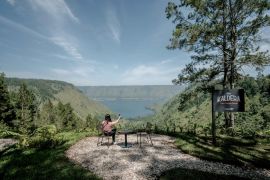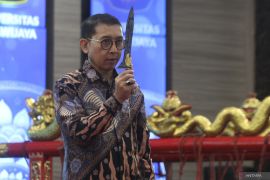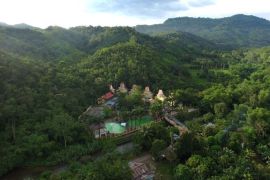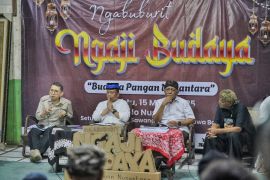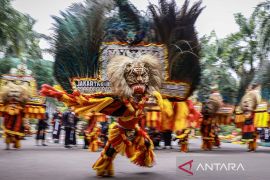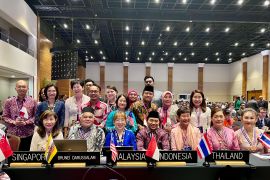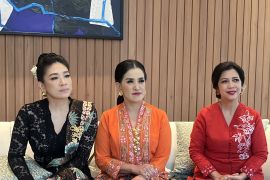The inclusion of the Saman dance of Aceh in UNESCO`s list will increase the number of Indonesian cultural heritages which have earlier been recognized by the world body such as the `wayang` puppet show, `keris` dagger, `batik` clothes and `angklung` bamboo music instrument.
According to Diankirawaty`s weblog, Saman dance is a traditional dance that does not utilize any music instrument. The dancers themselves will sing and clap their hands together to create harmony in movement and sound.
It teaches us that, among all differences, corporation and unity can create the finest result especially to encounter any conflict and ego of human beings. The uniqueness and the high spirituality aspect it has, cause the dance to deserve appreciation, preservation and recognition.
Thus, the UNESCO is expected to recognize it by including it into its intangible cultural heritage list.
"Saman dance will be announced as a world intangible cultural heritage by the UNESCO in Bali on November 19, 2011," Head of Tourism and Cultural Resources of the Ministry of Culture and Tourism, I Gde Pitana said on Monday.
He said that the recognition by the UNESCO of Saman dance would increase the number of Indonesian cultural heritages which had been recognized by the world body like the wayang puppet, keris dagger, batik clothes and the angklung bamboo music.
In order to win the recognition, Indonesia has to work hard and undergo a long verification process. "Ahead, we are targeting more Indonesian cultural heritages that would be recognized by the UNESCO," I Gde Pitana said.
He said that to win recognition as a world heritage for Saman dance his office had worked hard since several years ago, the result of which would be announced and included in the Representative List of the Intangible Cultural Heritage of Humanity next November.
He said that his office has noticed 890 world heritages, of which 689 were cultural heritages, 176 nature heritage and 25 others were mixture heritage of the two.
Of the recognized world heritages, 11 belonged to Indonesia, of which four were nature preserves like parks, three cultural preserves like temples and four were intangible cultural heritage.
Indonesia is rich in cultural heritages, yet only 11 have been recognized by the UNESCO. Ahead, Pitana hopes that more Indonesian heritages would be listed by the UNESCO, following the recognition of the Aceh Saman dance.
The plan of UNESCO to include Saman dance into its list of world intangible heritage of humanity is hailed by the people of Aceh, an Indonesian province in the western tip of Sumatra.
"The recognition is something to be pride of by the people of Aceh as it proves the good quality of Saman dance. For this, the government deserves a thumb-up," Imam Juwaini, director of the Asleum Ethnicity Group of Aceh, said.
Imam said that the Saman dance that would be included in the UNESCO`s list was still a general sense in term of name as in Aceh there were different kinds of Saman dances. Saman dances were basically divided into two kinds, namely the Rateb Duek dance and the Rateb Dong one.
The Rateb Duek dance is popular and derived from the hinterland areas while the Rateb Dong one came from Aceh`s coastal areas. But in principle, these two types of dances are in one unity.
"The people of Aceh have many kinds of saman dances such as the Gayo dance, the Seudati dance in the coastal areas, the Rante Meusekat in Meulaboh, West Aceh, and others such those of Nagan Raya district," Imam said.
Therefore, Imam expressed hope that the government would explain which of the Saman dances that would be included in the UNESCO`s list of world intangible heritage of humanity. This is important for preventing unilateral or overlapping claims among the people of Aceh.
So far, the Saman dance performed in Jakarta and overseas is actually not a genuine Saman dance but `Rampoe` one, which means that all types of Saman dances in Aceh are adopted and blended in the Rampoe dance.
"It should not happen that the dance included in the world heritage only carries a theme and contains no spirit or essence of Saman dance. This would disadvantage the Acehnese who own Saman dances," he said.(*)
A014/HAJM
Reporter: Andi Abdussalam
Editor: Jafar M Sidik
Copyright © ANTARA 2011
